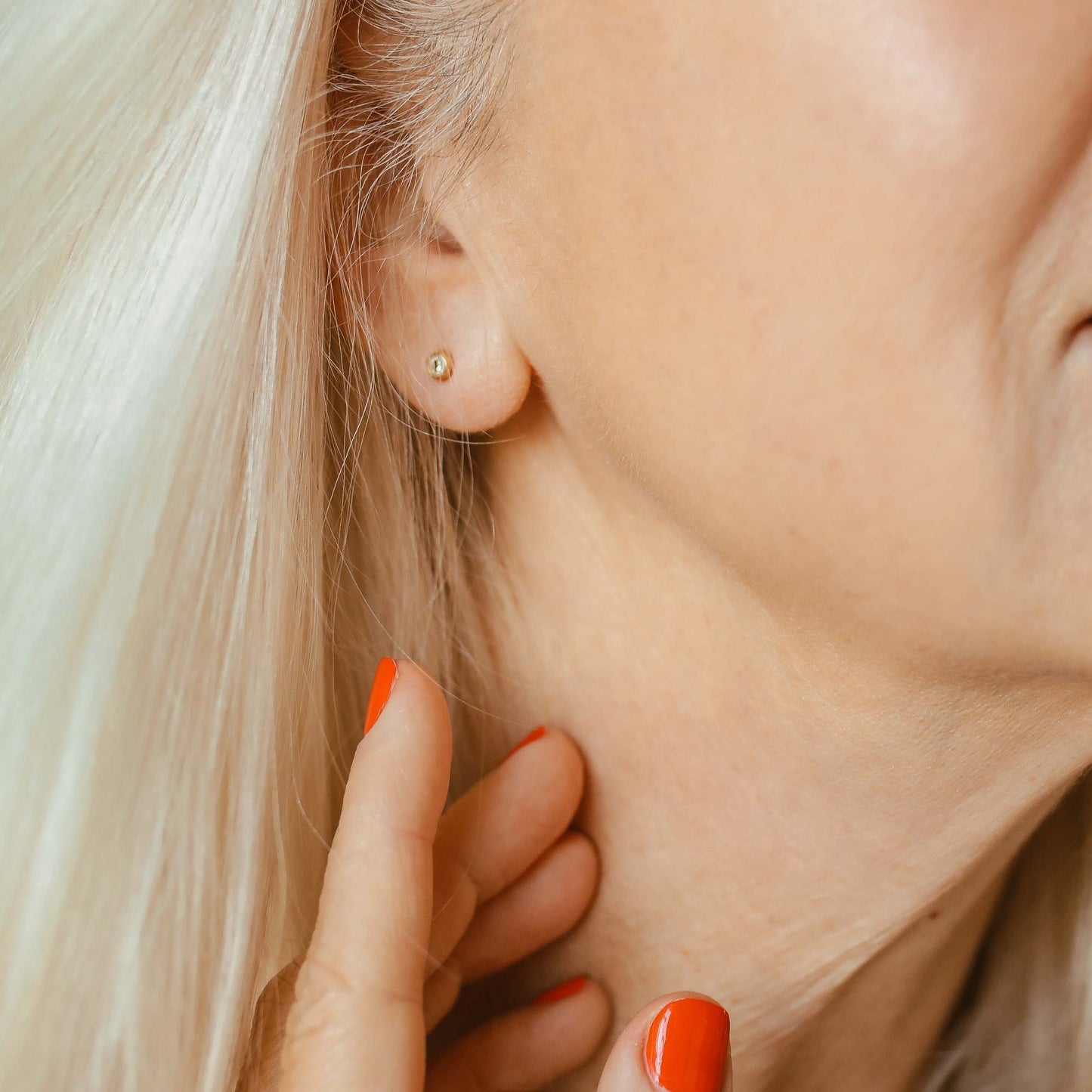
It's a fact that our skin changes over time - the skin of a 15 year old, 25 year old, 55 year old and 75 year old is dramatically different biologically. So we're going to be spending a few weeks taking a closer and more detailed look into the aging process - starting with two of the skin's fundamental building blocks - Collagen & Elastin. As a pairing, these two proteins make a huge contribution to the overall appearance of the skin and as we move into our 50s and beyond the body naturally produces much less collagen. Plus the stores that we do have are vulnerable to environmental exposure, pollution & UV light. Changes in collagen levels will have a direct impact on the thickness, plumpness & suppleness of our skin.
Meaning boosting and/or preserving your skin's collagen & elastin levels should be a key consideration in your lifestyle & skincare choices if your goal is for your skin to look it's healthiest as it evolves over the years.
The fact is however that how we do this is often highly misunderstood.
The role of Collagen & Elastin
Collagen is the primary, structural protein in your body. It plays a key role in the healing and overall health of all your connective tissue - your tendons, joints, cartilage and your skin. In fact around 3/4s of your skin is comprised of collagen. You can think of collagen as a building block, providing structure, strength and support to various parts of the body.
Elastin is another key protein in the body that allows tissues in your body to stretch and shrink. It's present in our blood vessels, lungs and in the skin. If you see collagen's role to provide support - elastin's role is to provide stretchiness. It's like the flexible glue that allows collagen to move.
How are Collagen & Elastin produced
Collagen is naturally produced in the body throughout our lives, but the rate of production declines as we mature. Things start to drop off as we move into our 30s and there is a significant drop in collagen levels experienced in women during the first five years of menopause. Collagen production can be stimulated through various means, ranging from more invasive aesthetic treatments (i.e dermal fillers & micro-needling), through to topical application of retinol or Bakuchiol, through to dietary supplementation (although evidence is unclear at this stage as to how effective ingesting collagen actually is for the skin).
Elastin is produced in our very earliest years in life and production effectively ceases as we move out of puberty. Meaning our overall store of elastin is finite and we carry it with us for life. There is very little evidence of any current techniques that work to regenerate elastin in our bodies.
The impact of aging on Collagen & Elastin
Our skin ages in two over-lapping ways; intrinsically (the natural, chronological process of aging over time) and extrinsically (meaning premature aging due to environmental factors). Interestingly, our intrinsic (i.e natural aging) has much less visible impact on the skin's appearance - some fine lines & wrinkles, loss of sub-cutaneous fat and loss of skin tone. Conversely, extrinsic aging - which is due to UV exposure, smoking, lifestyle & pollution - has much more visible impacts on the skin's appearance. This can be immediately apparent when we compare the appearance of the skin on the face vs other parts of the body which are typically hidden from the sun.
These extrinsic factors have a direct impact on our Collagen & Elastin levels. UV exposure or photo-aging break down & degrade collagen & elastin leading to accelerated depletion - hardening of the skin, loss of suppleness and plumpness. Similar impacts come from other lifestyle choices, especially smoking.
So how do we best look after these two key components of the body - to allow our skin to age naturally and not prematurely?
Protection & Preservation should be your number one goal at any age.
Like any other part of our health - If we view these two proteins as a finite resource then our goal is preventative - to protect them for our later years instead of looking for a quick fix to reverse the damage done. It's much easier to keep what you have than get it back - especially with Elastin. This applies at any age, but you can start as early as your 20s - effectively banking your Collagen & Elastin levels so you have healthier levels as you mature. Ways to do this include:
- Maintaining a healthy diet with a key focus on high quality proteins containing the amino acids that build collagen - legumes, soy, lean meat & fish.
- Eating foods rich in Vitamin C & Zinc, both essential factors in the production of collagen.
- Protect your skin from the sun every day. UV damage or photo-aging is the single most damaging contributor to the depletion and degradation of collagen & elastin.
- If you smoke, this is another reason to quit. Smoking degrades elastin and this not only impacts your skin, but your arteries, lung function and more
- Cut down on sugar - Sugar causes cross-linking of collagen, resulting in stiffening and loss of elasticity of our skin. The more sugar we consume, the more our skin starts to suffer.
- Get adequate sleep
- Control stress - cortisol as a direct impact on the degradation of collagen.
Ways to boost collagen
Whilst your body naturally produces less collagen as it ages you can still stimulate the additional production of collagen, helping to firm your skin. Key ways to boost collagen levels include:
- The inclusion of retinol or Bakuchiol in your routine - both of which are clinically proven to actively stimulate the production of collagen. We recommend Bakuchiol as a preferred option and it's the natural ingredient we feature in our range for mature skin. Bakuchiol is far gentler on the skin than retinol. It's less likely to cause irritation and less likely to dehydrate the skin.
- Scratch the surface - exfoliate. By exfoliating (removing the surface layer of dead cells) the skin is shocked into production of new cells which helps stimulate new collagen production.
- Vitamin C serums. There is some evidence that topical application of Vitamin C to the skin can stimulate collagen production - however it can also slow the damage and oxidatization caused by UV exposure, helping to preserve existing levels of collagen and elastin in the skin.
- Dietary supplementation of collagen. Whilst the evidence is not fully clear, there is some indication that ingesting supplements or foods with high levels of collagen (i.e bone broths) may help support the bodies natural production of collagen.
The bottom line
Elastin and Collagen levels are fundamental to the overall health of our skin and have a direct impact on the thickness, plumpness & suppleness of our skin. As we move into our 40s, 50s and beyond the body naturally produces much less collagen and the stores of our elastin degrade. If you're wanting you skin to look it's very best as it matures it's important to understand the role of these powerful proteins and how best to boost and preserve them.
Most importantly - environmental exposure, pollution & UV light are key contributors towards depleting your reserves early in life - so protecting your skin from these external factors is the most important consideration. You can supplement this with selected skincare products aimed at supporting the production of collagen as we mature.

